Current Studies
Current Studies
Our Studies
Mindfulness has the potential to ameliorate the adverse effects of stress on mental and physical health, through a variety of psychological, biological, and behavioral pathways. Therefore, many of our studies focus on the outcomes and underlying mechanisms of mindfulness in health & medicine.
We are interested in a number of empirical questions, the answers to which are essential in advancing scientific knowledge of mindfulness as a health enhancing "way of seeing" and "way of being." Much of our work has been generously funded by the National Institutes of Health (NIH), other health foundations, and internal university resources. THANK YOU to all our sponsors!
College Well-Being Survey Study
In spring 2023, the Mindfulness Lab launched our anonymous, online survey study to examine college student well-being at Rowan. Undergraduate students age 18 to 64 currently enrolled at Rowan University are eligible to participate. Students in "Essentials of Psychology" can take part in the study to earn SONA credit. All students who complete this survey in full are eligible to enter a raffle for a $25 gift card. Link to Qualtrics survey and online consent form can be found here.
*Internally funded by the Mindfulness, Stress & Health Lab at Rowan University.
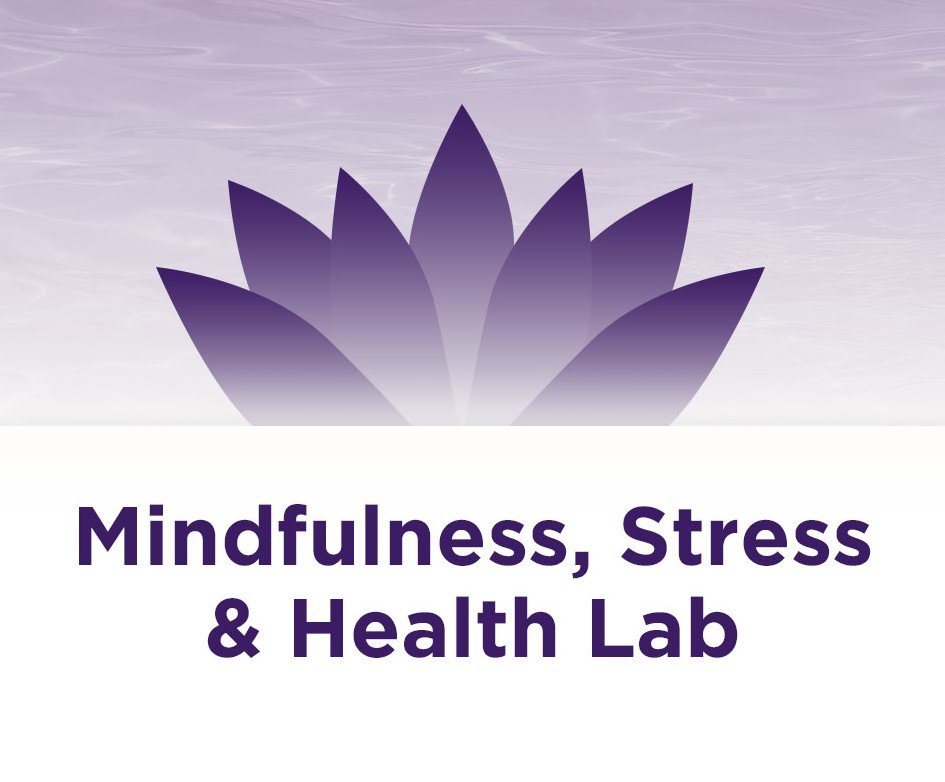
Mindfulness and Dialysis: Bridging Psychology & Medicine
Chronic kidney disease (CKD) is one of the top 10 leading causes of death in America, and more than 600,000 people are currently on maintenance dialysis 3d/wk for end-stage kidney disease. Because end-stage kidney disease is treatable, but not curable, it is imperative to optimize the patient experience of kidney care, including dialysis, in order to maximize engagement, adherence, and long-term survival. Mindfulness training has emerged as a promising, evidence-based approach to reducing stress and promoting health and well-being for a number of chronic medical conditions exacerbated by stress. This clinical study, featured on Rowan Today, represents an effort to bridge Psychology & Medicine by integrating mindfulness training into CKD care. Led by Dr. Greeson, a Clinical Health Psychologist, and Co-Principal Investigator, Dr. Lawrence Weisberg, a Nephrologist at Cooper University Health Care, we will conduct a mixed-methods, pilot randomized controlled trial (RCT) to test the feasibility and potential effectiveness of mindfulness training delivered via iPad during in-center hemodialysis. Outcome variables will include patient-reported stress, well-being, quality of life, intention to maintain dialysis treatment regimen, and kidney-related functioning. Dr. Britt Dahlberg, a Medical Anthropologist and Director of Research with the Cooper Center for Humanism, serves as a collaborator on the project to supervise qualitative data analysis.
*Funded by the New Jersey Health Foundation, Inc.
- Award declined due to existing funding and other commitments.




Physician COMPASS: Finding Connection to Prevent Burnout and Support Well-Being
Given the burnout crisis in healthcare, this pilot study aims to replicate and extend results initially reported by the Mayo Clinic to help promote physician well-being through COMPASS groups (“Colleagues Meeting to Promote and Sustain Satisfaction”). COMPASS groups involve self-directed, small-group, 1-hr meetings over a shared meal together, during which physicians discuss a selected topic about work-life balance and other issues related to job satisfaction and well-being. Designed to foster social connection, compassion, and meaning in work, COMPASS groups meet monthly for one-year at various sites throughout Cooper University Health Care in South Jersey. Quantitative outcome measures included validated surveys of stress, burnout, emotional well-being, mindfulness, compassion, quality of life, social support, and job satisfaction. Qualitative outcomes include open-ended survey questions about feasibility, acceptability, and perceived value of participating in the COMPASS groups. Our interdiscipinary study team brings together medicine, psychology, medical anthropology, and assessment/psychometrics. (pictured below: Jeff Greeson, PhD; Elizabeth Cerceo, MD; Edward Viner, MD; Lawrence Weisberg, MD; Britt Dahlberg, PhD; and Matt Gentile, EdD)
*Internally funded by the Center for Humanism, Cooper Medical School of Rowan University.
- Enrollment completed (Data anaysis phase)






Physician Compassion & Surgery Outcomes
![]()
This new study is a collaboration between the Department of Anesthesiology at Cooper University Hospital in Camden, NJ, and the Mindfulness Lab in the Department of Psychology. Working together, we aim to test whether patients' perceptions of anesthesiologist compassion before surgery are associated with pre-operative anxiety and post-operative pain and opioid consumption. Results from this prospective cohort study will help us better understand how physician compassion might directly influence surgical outcomes, including opioid-based pain management. More broadly, the project hopes to inform and promote "Mindful Practice" in medicine, to optimize health, healing, and recovery for all.
*Internally funded by the Rowan University Camden Health Research Initiative (CHRI).
- Completed (Featured Article with Editorial published in Anesthesia & Analgesia)
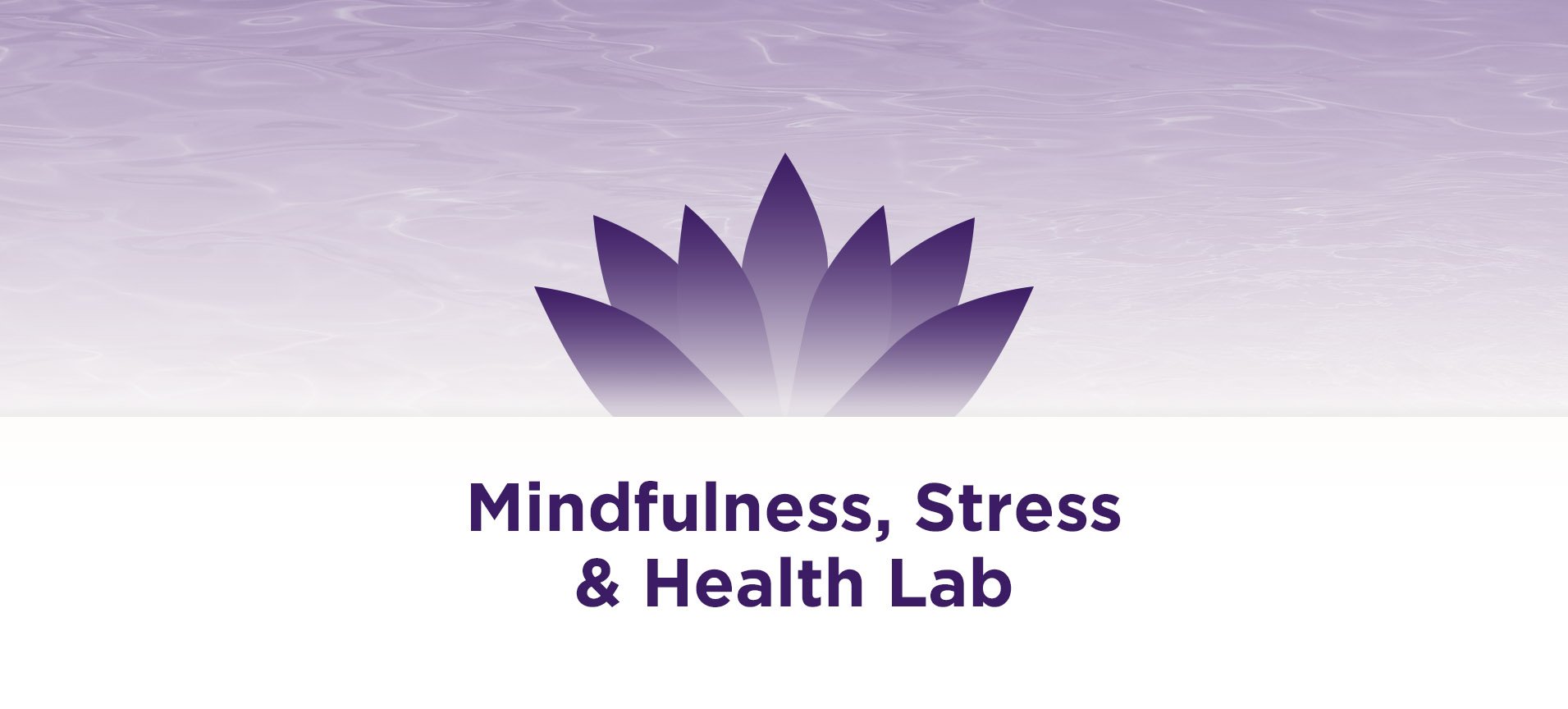

LIFT2: Mindfulness App for ICU Survivors
![]()
Led by colleague, Dr. Chris Cox, at Duke University Medical Center, the major goal of this Multiphase Optimization Strategy (MOST) trial is to further develop a stepped-care, mobile mindfulness app fully optimized for usability, efficiency, scalability, and clinical impact that will be off-the-shelf ready for a next-step definitive RCT, as well as a model for distance-based mind and body interventions.
*R01 grant funded by the NIH/NCCIH
- Completed (Original Article with Editorial published in JAMA Internal Medicine)
Mindfulness Training for Type 2 Diabetes
![]()
Led by colleague, Dr. Nazia Raja-Khan, at Penn State Hershey Medical Center (PSHMC), the major goal of this definitive, phase-III trial is to determine the effects of a 6-month Mindfulness-Based Stress Reduction (MBSR) intervention compared to health education on glucose control in 290 patients with uncontrolled Type 2 Diabetes Mellitus (T2DM).
*R01 grant funded by the NIH/NIDDK
- Link to ClinicalTrials.gov (Completed enrollment; Data analysis phase)
Digital Technology Use and Student Health Experiences
Given that overuse of digital technology is known to contribute to mental and physical health problems in college students, the goal of this two-part study led by Psychology Dept. professor, Dr. Danielle Arigo, is to better understand the relationship between digital technology use and students' health experiences, including emotional well-being, physical symptoms, health behaviors like physical activity and sleep. Part one of the project involves a cross-sectional online survey study of approximately 300 undergraduate students. Part two involves an ecological momentary assessment (EMA) design in order to assess daily associations between students' reported use/overuse of digital technology and their well-being and health behaviors. Collaborators on the research team, in addition to Drs. Arigo and Greeson, include: Phil Fizur, PsyD (Clinical Psychology and Behavioral Medicine), Tom Drake, MD (Physical Medicine & Rehabilitation), and Anthony Rostain, MD (Psychiatry and Behavioral Health) from Cooper University Health Care; Rowan Clinical Psychology doctoral students Kristen Pasko and Kiri Baga; and undergraduate research assistant Danielle Parthesius.
*Internally funded by Rowan University and the CHASE Lab.
- Phase 1 completed (Paper published in the Journal of American College Health)
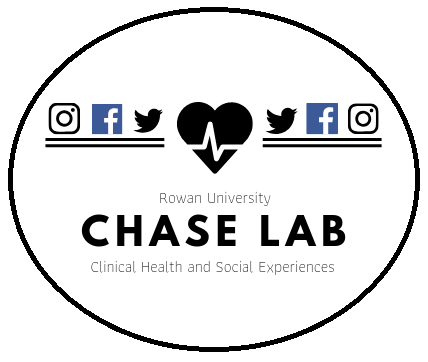
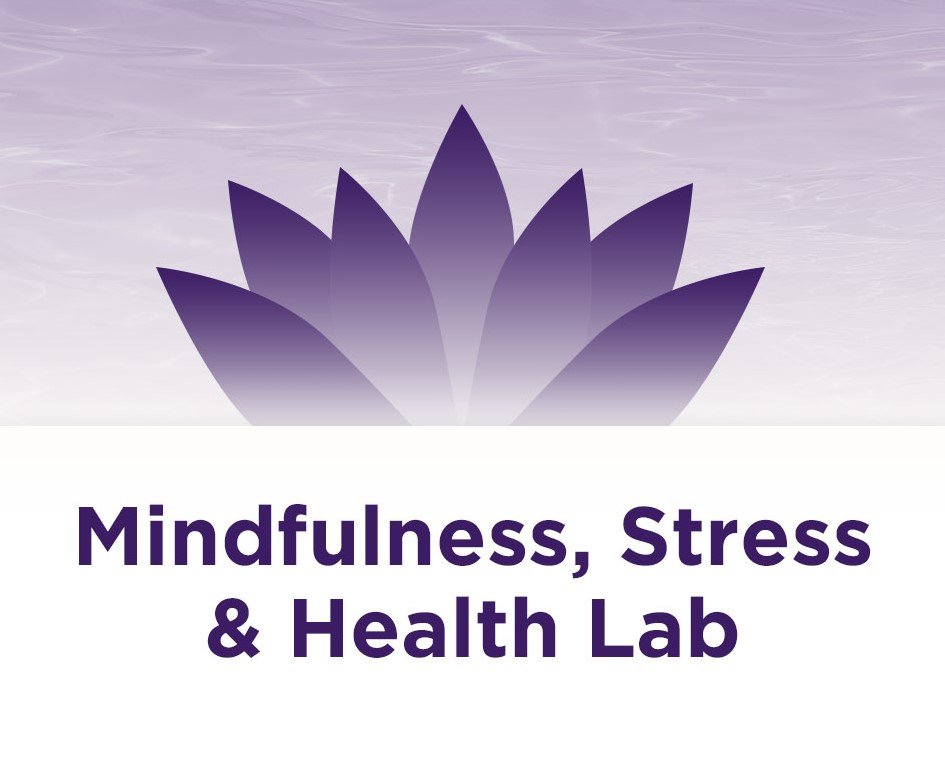
Workplace Wellness during COVID-19
This mixed-methods, pilot randomized controlled trial, led by Dr. Libby Tenison (now at Temple University), brought together experts in different domains of wellness -- including diet and nutrition, exercise, stress management, sleep, and positive psychology -- to help Rowan faculty & staff set personalized goals to reduce stress and promote wellness during the COVID-19 pandemic. The 6-session, group-based program involved short (30-min) didactic presentations delivered virtually or in hybrid format, accompanied by self-directed use of a smartphone app designed to promote individualized wellness goals. Quantitative outcome measures included validated surveys of stress, well-being, and physical activity, along with physical health measures including blood pressure, weight, and cholesterol. Qualitative outcomes regarding feasibility, acceptability, and perceived value were obtained by focus groups.
*Internally funded by Rowan University.
- Completed (Conference abstract with main results published.)


Mindfulness and Healthy Aging for Mild Cognitive Impairment
![]()
In partnership with the New Jersey Institute for Successful Aging (NJISA) at the Rowan School of Osteopathic Medicine (RowanSOM), this mixed-methods pilot study aims to test if a 6-week mindfulness program designed for older adults with mild cognitive impairment (MCI) and their partners/caregivers is feasible, acceptable, and effective. We enrolled 12 patient/partner dyads in the study, and ran two separate mindfulness courses in Fall 2019 and Winter 2019/2020. Outcomes included measures of physical health, emotional well-being, and cognitive functioning.
*Funded by the New Jersey Health Foundation (NJHF)
- Completed enrollment (Presentation & publication phase)

RU Mindful
![]()
RU Mindful is an online study for Rowan students, currently in the data analysis and publication phase. Using anonymous survey data from over 500 students, we are testing relationships between questionnaire measures of mindfulness, stress, and health. We are also testing whether hypothesized links between mindfulness, stress, and health are consistent or different across diverse groups of students.
*Internally funded by the Mindfulness, Stress & Health Lab at Rowan University.
- Completed (Several papers published on mind-body health, stress symptoms, cognitive functioning, and yoga & meditation experience. Preprint on a moderated mediation analysis posted to PsyArXiv.)

RU Mindful 2 "Light"
![]()
RU Mindful 2 "Light" is a small pilot study designed to pilot test a new laboratory protocol, in preparation for a larger study (RU Mindful 2) that will involve psychophysiology. In RU Mindful 2 "Light", we recruited 20 Rowan students to undergo a new experimental protocol that involved completing online survey questionnaires, performing a neurocognitive test battery using an iPad, participating in a brief (5-min) emotional stressor called the Anger Recall Task, and practicing a 5-min. mindful breathing meditation (versus a quiet rest control). Select results were presented at the Association for Behavioral and Cognitive Therapies (ABCT) annual conference in November 2020. The goal, in addition to testing new experimental procedures in the lab, was to test relationships between survey measures of mindfulness, neurocognitive functioning, emotional reactivity to stress, and response to a brief mindfulness meditation practice.
*Internally funded by the Mindfulness, Stress & Health Lab at Rowan University.
- Completed (Multiple conference presentations.)

RU Mindful 2
![]()
RU Mindful 2 is lab-based study in the planning phase. We aim to enroll 40-50 healthy men and women between ages 18-65. Using a new BIOPAC psychophysiology system, an EEG 'net' for brain imaging, and saliva samples to measure stress hormones and cytokines, the main goal is to identify biological “signatures” of trait mindfulness -- one’s natural ability to be mindful in everyday life. The study also aims to test whether a brief mindfulness exercise can buffer emotional and physiological responses to stress.
*Internally funded by the Mindfulness, Stress & Health Lab at Rowan University.
- Not yet recruiting

Mindfulomics: Searching for the 'Signature' of Mindfulness
A handful of recent clinical studies have shown that mindfulness meditation can modify gene expression in immune cells, opening the door to a new field of scientific inquiry Dr. Greeson calls "Mindfulomics". To advance our understanding of the biological ‘signature’ of mindfulness at the level of gene expression, this project puts forth three research questions: (1) What is the functional genomic signature of state mindfulness, when induced through meditation practice? (2) What is the functional genomic signature of trait mindfulness, when quantified as ‘high’ vs. ‘low’ scores on a standardized questionnaire? (3) What is the functional genomic signature of a successful treatment response to Mindfulness-Based Stress Reduction (MBSR), and is the functional genomic signature of an MBSR responder correlated with key outcomes, such as psychological well-being, quality of life, sleep quality, and objective health measures like blood pressure?
*Funded by The Institute for Integrative Health (TIIH)
- Completed (Presentation & publication phase.)
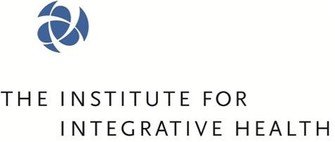
Serenity Study
Serenity Study Eligibility
✓ Have blood pressure in the pre-hypertensive range (systolic BP 120-139 or diastolic BP 80-90)
✓ Are a healthy adult between the ages of 21 and 70
✓ Are interested in learning ways to better manage your stress
✓ Are not taking blood pressure medication
✓ Have access to a computer
✓ Are a non-smoker
If you answered yes to all of these, you may be eligibile. Please contact a member of our team to learn more.
Serenity Study
The Serenity Study assesses different approaches to stress management in order to help lower blood pressure.
Eligible participants were asked to:
- provide baseline measurements of blood pressure and complete online surveys
- participate in an 8-week stress management class
- provide a 6-month and 1-year follow-up assessment of blood pressure and complete online surveys
*R01 grant funded by the NIH/NHLBI
- Link to ClinicalTrials.gov
- Completed enrollment (Data analysis phase)

Serenity Study (Diversity Supplement)
![]()
Under the mentorship of Dr. Greeson, this Administrative Supplement to Promote Diversity in Health-Related Research is for Gabrielle Chin, a Graduate Student in the Clinical Psychology PhD program at Rowan University. The award supports mentored clinical research experience on the parent R01 grant (Mindfulness-Based Stress for High Blood Pressure: A Two-Site RCT) and will test three unique aims that complement the primary aims of the multi-site efficacy trial.
*Funded by the NIH/NHLBI
- Completed (Several papers published, including baseline data analysis, literature review on diversity in mindfulness research on health, and literature review on mindfulness and physical disease.)

Serenity N.O.W.
The Serenity N.O.W. (New Opportunities for Wellness) was a pilot study that investigated whether an 8-week, Mindfulness-Based Stress Reduction (MBSR) program can help relieve stress, depression, and inflammation in adults living with HIV.
Eligible participants in Serenity N.O.W. were asked to:
- provide baseline assessments of blood work and complete online surveys
- participate in an 8-week stress management class
- provide post-intervention and 3-mo. follow-up assessments of blood work and online surveys
*Parent P01 grant for the Penn Mental Health AIDS Research Center funded by the NIH/NIMH
- Completed

Serenity for All
![]()
Everyone has the natural ability to be mindful, and mindfulness training is now available to almost anyone, anywhere. Research, however, currently under-represents people who are self-taught, as well as people of color. This mixed-methods study, therefore, aimed to learn about people who practice mindfulness outside of a formal classroom, and the methods they use to practice mindfulness. The study involved an online survey and a phone interview component. Both parts of the study aimed to include individuals currently practicing mindfulness who were not enrolled in a formal course. The phone interview focused specifically on people of color who were currently practicing mindfulness. Conceived and led by Vanessa Anyanso.
*Internally funded by the Mindfulness, Stress & Health Lab at the University of Pennsylvania.
- Completed enrollment (Data analysis ongoing.)

LIFT: Mobile Mindfulness for ICU Survivors
Dr. Greeson was a co-investigator on this study, which tested the feasibility, acceptability, and clinical promise of a new, mobile mindfulness-based treatment for Intensive Care Unit (ICU) survivors. Using a randomized clinical trial design, the study compared usual care to a telephone-delivered, 6-session mindfulness program to a newly developed mobile intervention delivered via the internet and smartphone application. Led by Dr. Chris Cox at Duke University Medical Center, patients were enrolled at two sites (Duke University and the University of Washington).
*R34 grant funded by the NIH/NCCIH
- Completed (Main findings published)

Mechanisms of Mindfulness: NIH Career Development Award
As a junior faculty member at Duke University Medical Center, Dr. Greeson received an NIH "Pathway to Independence [PI]" career development award. This project examined the effect of Mindfulness-Based Stress Reduction (MBSR) on a cluster of psychological, biological, and behavioral variables implicated in cardiovascular disease risk. Notable findings from this study included significant MBSR-related changes in negative emotions (anxiety, depression, and stress symptoms), positive emotions (positive affect, gratitude, self-compassion, satisfaction with life, positive states of mind), transdiagnostic emotion regulation processes (rumination, thought suppression, emotion suppression, avoidance), sleep quality and quantity, and decreased cardiovascular and catecholamine reactivity to emotional stress testing in the lab.
*K99/R00 grant funded by the NIH/NCCIH
- Completed (Data analysis ongoing. Several papers published.)

Mindfulness Skills Course for Penn Employees
Dr. Greeson led the evaluation of a 4-week mindfulness skills program, which was available for FREE to all employees of the University of Pennsylvania (Penn) and the University of Pennsylvania Health System (UPHS). In addition to demonstrating the feasibility and acceptability of a new workplace wellness program, Dr. Greeson and his team documented significant changes in perceived stress, mindfulness, attitudes toward oneself & others, and workplace productivity.
*Supported by the Penn Employee Assistance Program (EAP) and Penn Behavioral Health (PBH)
- Completed (Paper published in Global Advances in Integrative Medicine and Health)
![]()